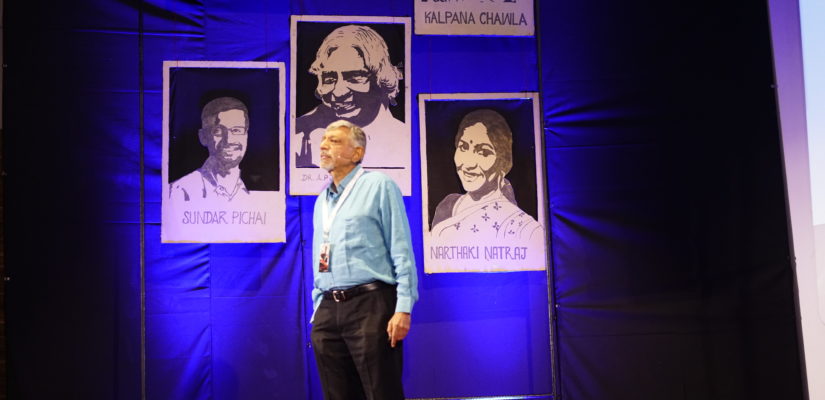
Military power sets the stage for diplomacy NAAD Sept 2020
file:///C:/Users/Harsha%20Kakar/Downloads/Naad%20September%202020%20FOR%20WEB.pdf
Military power sets the stage for diplomacy NAAD Sept 2020
There have been multiple statements issued by the Indian hierarchy in recent days. Addressing the US-India Strategic Partnership Forum conclave on ‘Navigating New Challenges’, the CDS, General Rawat, mentioned that coordinated action by China and Pakistan along the northern and western borders necessitated that the armed forces be prepared for a two front conflict. He stated, ‘We have devised strategies to deal with the primary front and the other front would be secondary.’
Discussing rising Chinese influence in Asia, General Rawat stated that Indian policy of engagement, ‘if not backed by credible military power and regional influence would imply acknowledging China’s pre-eminence and influence in the subcontinent and the Indian Ocean Region.’ He hinted that diplomacy and military power must act in tandem. Prior to India taking pre-emptive offensive action against China in Ladakh, General Rawat had warned that if diplomacy fails in restoring status quo, military options are on the table. As the CDS, his emphasis remains on maintaining military power as a deterrence to hostile neighbours.
Simultaneously, the Indian Foreign Minister, S Jaishankar, stated that the solution (to the Indo-China standoff) must be found in the domain of diplomacy. He added that this would happen if both sides ‘understand it is in their own interests. It is vital for both countries to reach an accommodation.’ It was the second time he made a similar comment in recent days. He also confirmed his meeting with the Chinese foreign minister Wang Yi in Moscow on the side lines of the SCO summit.
Post the disengagement of forces and creation of a buffer zone, post Galwan, China had displayed disdain for de-escalation. It refused to honour agreements and kept placing unacceptable terms and conditions. Indian request for talks were inordinately delayed and even when held, were inconclusive. The Chinese were smug in the belief that the situation was in their favour and India had limited choices. There was no progress in either military or diplomatic parleys.
Chinese philosophy of talks implies delaying resolution while consolidating gains. Chinese state-owned media spoke of delinking military and economic actions, accepting agreements reached and mutual de-escalation, while on ground there was no movement. Evidently China was in no rush to act as it aimed to tire the Indian government into acceding to their perceptions of the LAC. Hence, talks in isolation were meaningless as China procrastinated.
Militarily, forces were deployed, prepared for the long haul, strength sufficient to prevent misadventure or offensive actions. China appeared content with its military gains, achieved without firing a bullet. India was being pushed into a changed status quo. If the Indian army failed to act, change the ground situation to its favour, the current standoff could drag for a prolonged duration.
Any offensive plan had the risk of opening of fire leading to an escalation. The nation which opened fire first would be accused of escalating.
Thus, the decision was taken to grab vacant dominating features, ignoring which side of the LAC they exist, as the LAC had no sanctity, since being violated by China, which continued to dispute it. The successful operation to capture these features employing strong force levels, changed ground rules. The scenario now shifted in India’s favour and that too without firing a bullet. Militarily it was a master stroke.
Instead of India seeking talks and pull back, it was China which began demanding the same. These positions apart from dominating Chinese camps would deny them any opportunity to surprise and would with time only be strengthened. Indian forces beat a similar attempt by the Chinese, who as they came close, were warned of Indian presence. This tactical action had a major strategic impact as it pushed China onto the defensive.
It shook the Chinese from their slumber. The fact that their bases were now under Indian domination and dislodging Indian forces would imply opening fire leading to escalation, compelled them to reconsider their options.
There were increased demands from the Chinese for talks at every level. Brigadier level meetings were held almost daily with no outcome as India refused to pull back from its current positions. The Chinese defence minister, General Wei Fenghe sought a meeting with the Indian defence minister in Moscow, an act he did not even consider till the Indian offensive action occurred.
Post the meeting, both nations issued statements, accusing the other of violating the LAC. The Chinese foreign ministry and their ambassador in Delhi continuously harped that India had crossed the LAC and hence should pull back. It failed to mention that it was China which never agreed to the current alignment of the LAC.
To add to military pressure was banning of multiple Chinese apps by the government. This economic action was small but a means of conveying the government’s intent of not backing down. Economically if China is to be compelled to pull back, then the costs must be high, which India cannot force currently. Hence, it decided to employ diplomatic and military power in tandem.
An overall analysis would indicate that the CDS and foreign minister projected a Jekyll and Hyde approach towards China. One mentioned the military option, while the other spoke of a soft diplomatic solution. Before the meeting of diplomats, where the softer option would be discussed and possibly a solution arrived at, the military option was exercised, providing Indian diplomacy an advantage. It is China which would now be seeking an honourable exit to the standoff, however, would not agree to a final solution to the LAC.
Finding a resolution is difficult as there is an immense trust deficit between the two countries. Currently India holds the advantage, which the diplomats must understand and exploit. Unlike previous discussions, post Indian army gains in 1965 and 71, India should not lose the advantage in talks. It should exploit its strong position.